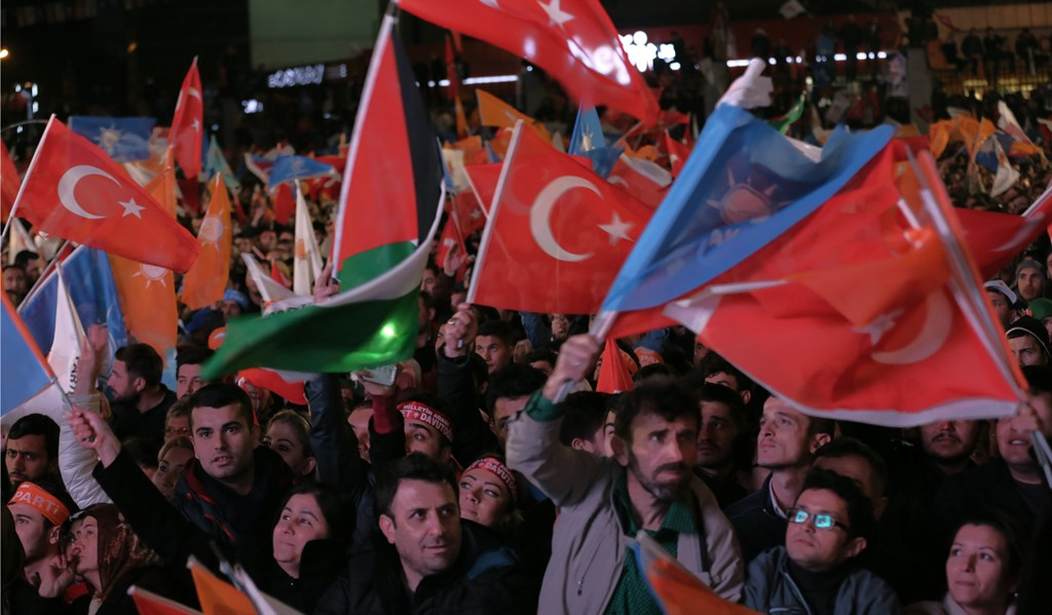Turkey's democracy is the legacy of Kemal Ataturk, founder of the Turkish Republic, and the only man to successfully modernize a nation of Muslim culture. That democracy is Turkey's greatest domestic asset and most valuable foreign policy tool.
Unfortunately, Nov. 1's snap national election results put Turkish democracy, cultural vitality and Ataturk's legacy at risk.
The threat to Turkish democratic institutions is a man notoriously jealous of Ataturk, current president Recep Tayyip Erdogan. The snap election gave Erdogan and his Justice and Development Party, AKP, overwhelming control of parliament (316 of 550 seats). The AKP had controlled parliament since 2002, but in the June 7 election it lost its one-party majority. Political haggling among opposition parties, including Ataturk's Republican Peoples Party, the CHP, failed to produce a coalition government; a new election was necessary.
However, in the intervening month's domestic terrorist incidents, the fitful war with the Islamic State in the Levant and Syria's violent chaos dominated Turkish politics.
Erdogan portrayed himself as the only leader capable of addressing Turkey's deteriorating security situation. Domestic security certainly diminished; why it did stirs angry accusations. Erdogan's political opponents maintain that he used the violence to solidify political support. His more vicious critics accuse him of intentionally permitting violence. For example, they argue his government could have prevented the Oct. 10 terror bombing of a peace march in Ankara, now attributed to ISIL. Over 100 people were murdered in that attack.
Is it an over the top conspiracy theory-type accusation? Possibly. Erdogan himself, however, believes over the top conspiracy theories, and he uses conspiratorial doubt and fear as political tools. His record for jailing journalists and intimidating political opponents associated with his alleged conspiracies is fact, not theory. The election didn't assuage his fears -- it ignited another surge of arrests. On Nov. 3, police arrested scores of people associated with Erdogan critic and Muslim cleric Fethullah Gulen. At one time Gulen supported Erdogan and the moderate Islamist AKP. However, Gulen broke with Erdogan over credible charges of corruption within Erdogan's governing circle.
Recommended
The demise of the AKP's Kurdish peace initiative and the revival of Ankara's war with the radical Kurdistan Workers Party, PKK, are also facts. Even if Erdogan didn't spur it, renewed war with the PKK has benefited him politically.
The election did not give Erdogan everything he desired. He needed 330 seats to call for a constitutional convention. Erdogan intends to rewrite the constitution and reconstruct the Turkish system. His public goal is a strong man presidency. His opponents argue that his not-so-hidden goal is installing himself as president for life.
Since 1923, secular Turks, many of whom are practicing Muslims, have feared that if Islamists ever gained power, they would never release it. In the 1990s Erdogan said, "Democracy is merely a train that we ride until we reach our destination." Erdogan has since claimed he was delivering a rabble rousing speech and his views have tempered. He and his AKP Islamists are committed to a secular state.
Rigging the constitution and imposing a strong man system would be a political, social and historical disaster for Turkey. It would be a political disaster for NATO. It would be a major setback to Muslim modernizers around the world.
Modernity has many traits, but creativity, adaptability and free communication are among them. Secular political pluralism does a far better job than tyrannical, ethnic or sectarian-controlled political structures. Ataturk thought so. In 1924 he ended the Caliphate, which is why al-Qaida hates him far more than it hates George W. Bush. Ataturk thought truly modern states treat women as citizens with equal, secure political rights. As president, Ataturk emancipated Turkish women.
Ataturk bequeathed Turkey what his greatest biographer, Andrew Mango, called "the structure of a democracy, not of a dictatorship." The productive value of Ataturk's secular democratic legacy is self-evident.
Over time Turks developed a vibrant democracy. Now they are ruled by a man who apparently resents it.

























Join the conversation as a VIP Member